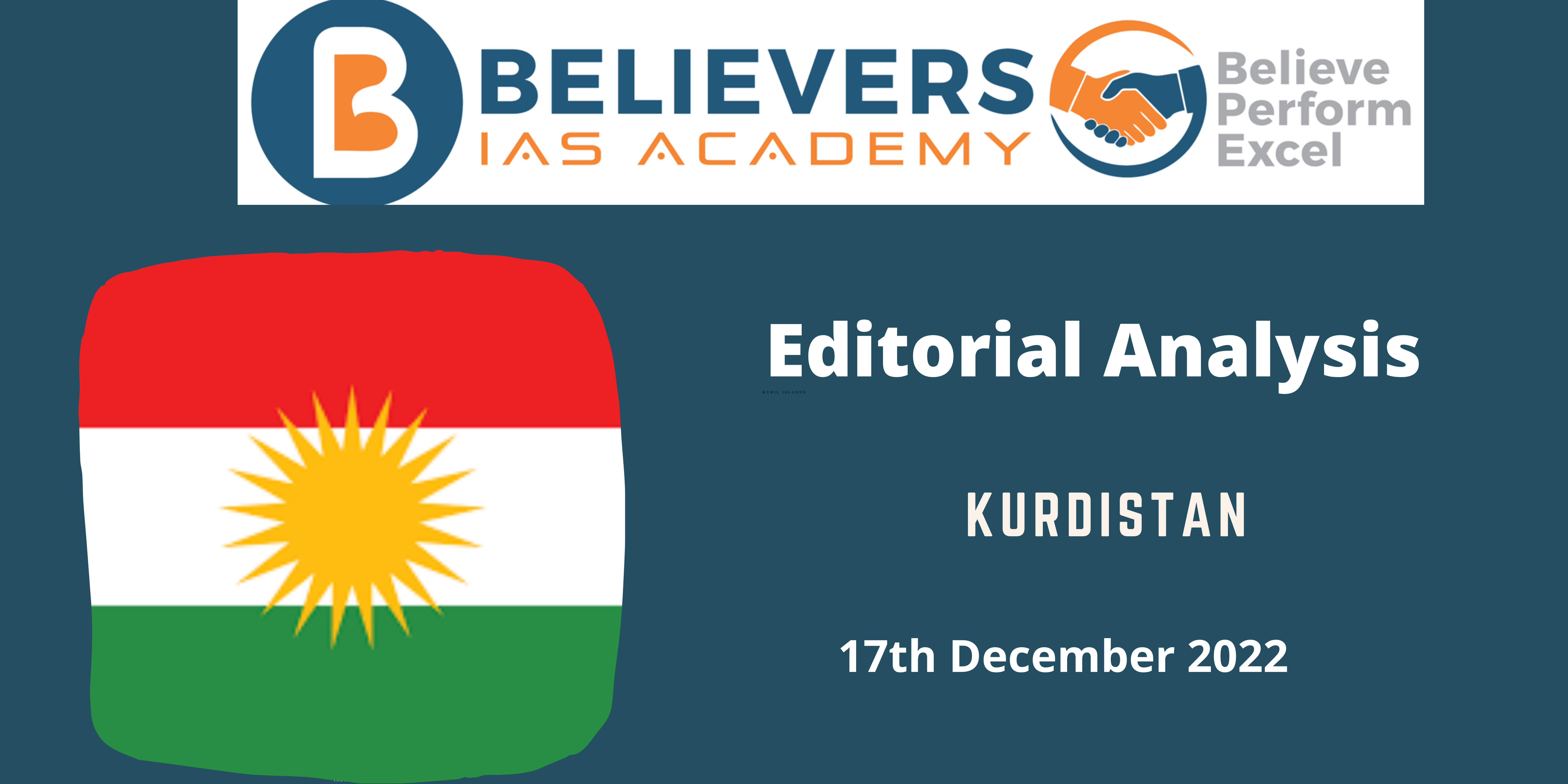Kurdistan
#GS-02 International Relations
Context: Turkey has launched a military offensive against Kurdistan Workers’ Party (PKK) and People’s Protection Units (YPG) on the Syrian border towns
For Prelims
Who are Kurds
- Kurds have been termed as the world’s largest stateless ethnic group and have an estimated population of 25 million to 35 million.
- While majority among the Kurdish people today adhere to Sunni Muslim there are followers of other faiths as well, such as Sufism and other mystical practices.
- Significant population of Kurds live in the highlands of southern and eastern Turkey, northern Iraq, the northeastern Syria, northwestern Iran, and parts of south Armenia.
- While small communities are scattered across Georgia, Kazakhstan, Lebanon, and eastern Iran as well.
- The Kurds are a minority in each of these countries.
- After World War I the allies had made provisions for a Kurdish state in the 1920 Treaty of Sèvres.
- However, this was never fulfilled as the Treaty of Lausanne set the boundaries of modern Turkey and made no such provision.
- This has left the Kurds with minority status in all of the new countries.
- Currently Kurds enjoy partial statehood in the autonomous region of Iraqi Kurdistan.
Kurdistan Workers’ Party (PKK):
- The Kurdistan Workers’ Party or PKK is a Kurdish militant political organization and armed guerrilla movement which seeks to establish an independent Kurdistan
- The PKK is designated as a terrorist organization by Turkey, the United States, the EU and few other countries.
People’s Protection Units (YPG)
- People’s Protection Units (YPG) is a Syrian-Kurdish militia which mostly consists of ethnic Kurds, but also includes Arabs and foreign volunteers.
- They were a major part of the fight against the Islamic State (IS) and was supported by the United States and other Combined Joint Task Force – Operation Inherent Resolve
- Turkey, and Qatar have declared them as a terrorist organisation closely associated with the Kurdistan Workers’ Party.
- This classification however is not accepted by the US and their allies majorly due to their involvement in the fight against IS.
For Mains
The concern:
- Many of the region under Turkey’s offensive where under the control of the Islamic State in 2014-15 which were reclaimed by the YPG with US help.
- The military incursion could trigger further chaos, which could help Islamist militants to regroup and push the Kurdish population into further misery.
- It could also help other extremist elements in the region to form a resurgence using the fighting and chaos.
Source “Dangerous gamble“




